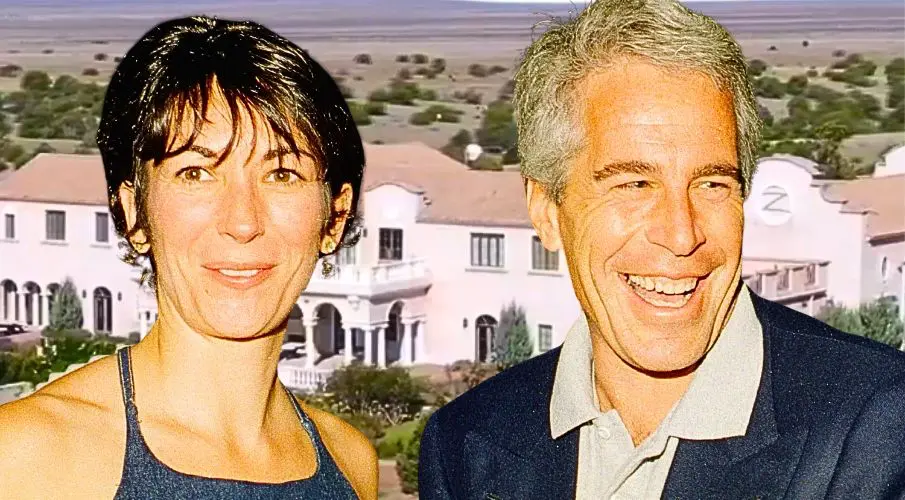Zorro Ranch, a remote estate in the desert of New Mexico, has long been a place of silence. That, at least, is how the state of New Mexico treated it until now. A hilltop, a mansion, a private runway – and a name that has echoed like a dark resonance for years: Jeffrey Epstein. Now, decades after his visits, the state is finally making a new attempt to break the silence. And one can sense how much more is at stake here than the history of a single property.
Andrea Romero, a representative from Santa Fe, has said out loud what many long suspected: several survivors of Epstein’s abuse have for years signaled that minors were also abused at Zorro Ranch. What exactly happened there is still not known in full. Too many gaps, too many blind spots, too many authorities that failed to act at the time. “There is no complete record of what occurred,” Romero told a panel of legislators. Her proposal: a “truth commission,” equipped with 2.5 million dollars, meant to finally determine what officials knew, what was covered up, and how the state can prevent such crimes from ever happening again.
The reporting struck a nerve. While documents about Epstein’s network are being devoured, exposed, and weaponized one after another in Washington, and even King Charles III is stripping his brother of his title, New Mexico no longer wants to remain a spectator but undertake its own investigation — something that has been long overdue. It would be a step into the same international web of inquiries that has been shaking politics, the justice system, and the public for months.

Epstein, who died in a New York jail cell in 2019, purchased Zorro Ranch in 1993 from then-Governor Bruce King, a Democrat. He built a 26,700-square-foot mansion there, a property that for decades remained sealed off like a private kingdom. In 2023, the estate was sold by Epstein’s executors, with the proceeds going to creditors. But the building, many say, is less a place than a symbol: of years of passivity, legal retreat, and the stark line between wealth and accountability.
New Mexico had looked into the matter before – at least briefly. In 2019 the attorney general’s office confirmed that it had interviewed possible victims. And in 2023 Attorney General Raúl Torrez launched an investigation into the financial structures Epstein had used within the state. Two banks ultimately paid 17 million dollars for anti-trafficking measures. But the deeper question, the moral and structural one, remained unanswered: which authorities failed? Why did a man who was long required to register as a sex offender in Florida not have to register in New Mexico? How could such a gap exist in the system? The answer: all of them.

In the legislative chamber there was now a rare mix of political caution and bipartisan support. Republican Andrea Reeb, formerly a district attorney in Clovis, put it clearly: “I believe the people of New Mexico have a right to know what happened at that ranch.” And she emphasized that the idea of a commission did not strike her as a political maneuver but as an attempt to finally deliver justice to victims. But not everyone was convinced. Her colleague Stafani Lord, also a Republican, asked the question hanging in the air: “Why only now?” She pointed to Trump’s recent announcement that he intends to release Epstein records and warned of political tension. At the same time, she admitted that every time she rides past the ranch on her motorcycle, she feels sick to her stomach – a physical reminder of what might have occurred at that place.
Before real answers appear on the table, at least two years will pass. The state House must first approve a bipartisan oversight committee in January. Only then could the truth commission begin its work – thorough, independent, and without mercy for those who looked away for far too long. In the end stands a state confronting its own shadows. A stretch of land that remained silent for years. And a society realizing that places like Zorro Ranch do not simply decay but leave traces – in the files, in the souls of the survivors, in the collective memory. And that the only way to face these shadows is to finally call them by their name.
Investigative journalism requires courage, conviction – and your support.
Please help strengthen our journalistic fight against right-wing populism and human rights violations. Every investigative report, every piece of documentation, every day and every night – all of it requires time, research and legal protection. We do not rely on advertising or corporations, but solely on people who make independent journalism possible. People like you.
Not everyone can give the same amount. But everyone can make a difference. Every contribution protects a piece of journalistic independence.
Updates – Kaizen News Brief
All current curated daily updates can be found in the Kaizen News Brief.
To the Kaizen News Brief In English
Wenn so etwas schon ungestraft in den „alten USA“ möglich war, reicht meine Phantasie nicht aus, was ist, wenn die USA ihren Wandel zur Diktatur vollzogen haben.
… der druck ist nun zu groß, new mexico kommt nicht mehr daran vorbei, den fall nochmals aufzurollen
Bei euch zeigt es sich wieder, wo der Unterschied zwischen Qualitätsjournalismus und zum Beispiel Medien wie Welt, Nius, Berliner Zeitung oder auch t-online liegt.
ganz lieben dank
was Macht, Geld und Gier alles anrichten können, sieht man an diesem Beispiel deutlich. Danke für deine Aufklärung
New Mexiko hatte ich im Zusammenhang mit Epstein nie auf dem Schirm.
Danke, dass Du das ins Licht gerückt hast.
Es ist wichtig, dass ein demokratisch regierter Staat nun endlich versucht aufzuklären, was damals passiert ist.
Du hast absolut recht, dass dort alle Institutionen versagt haben.
Wahrscheinlich wie immer „folge der Spur des Geldes“.
Denn so blind kann doch Keiner gewesen sein.